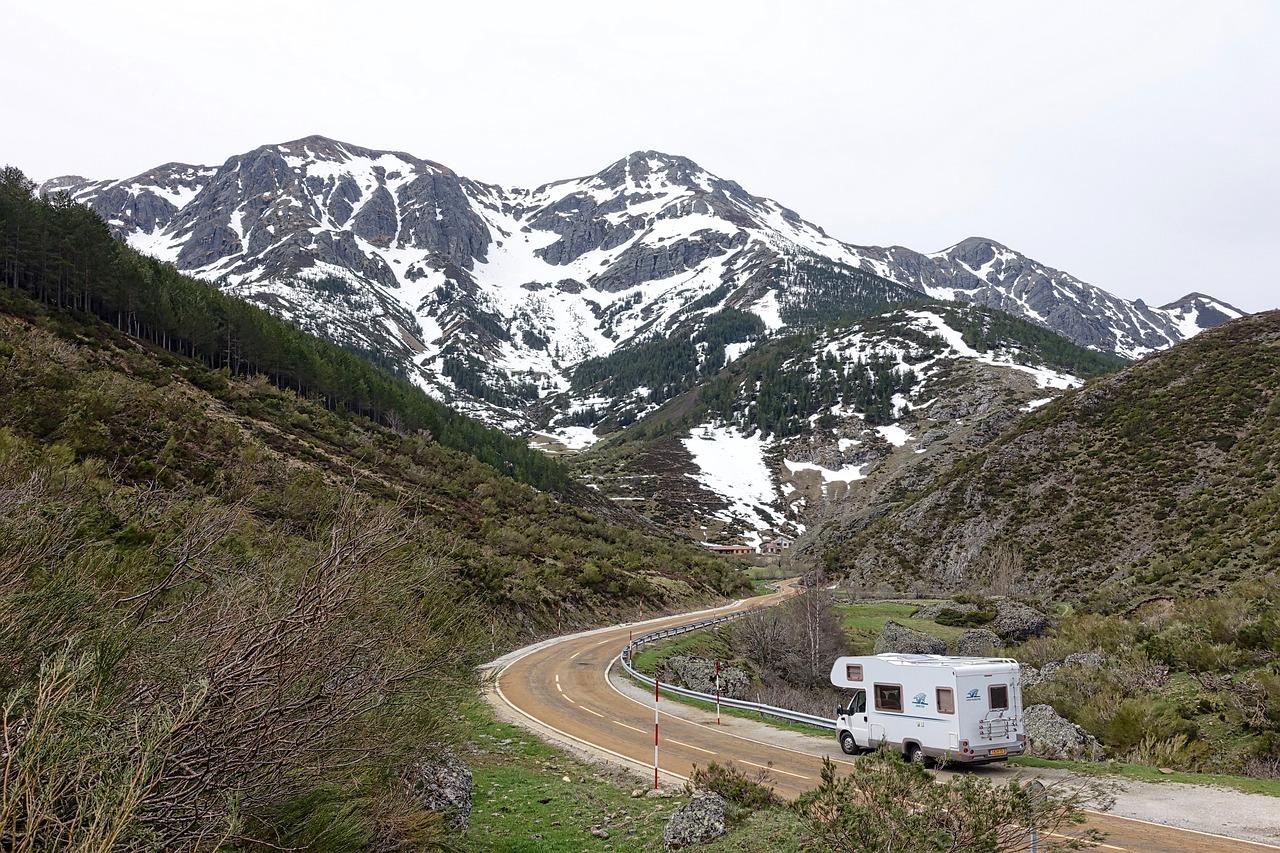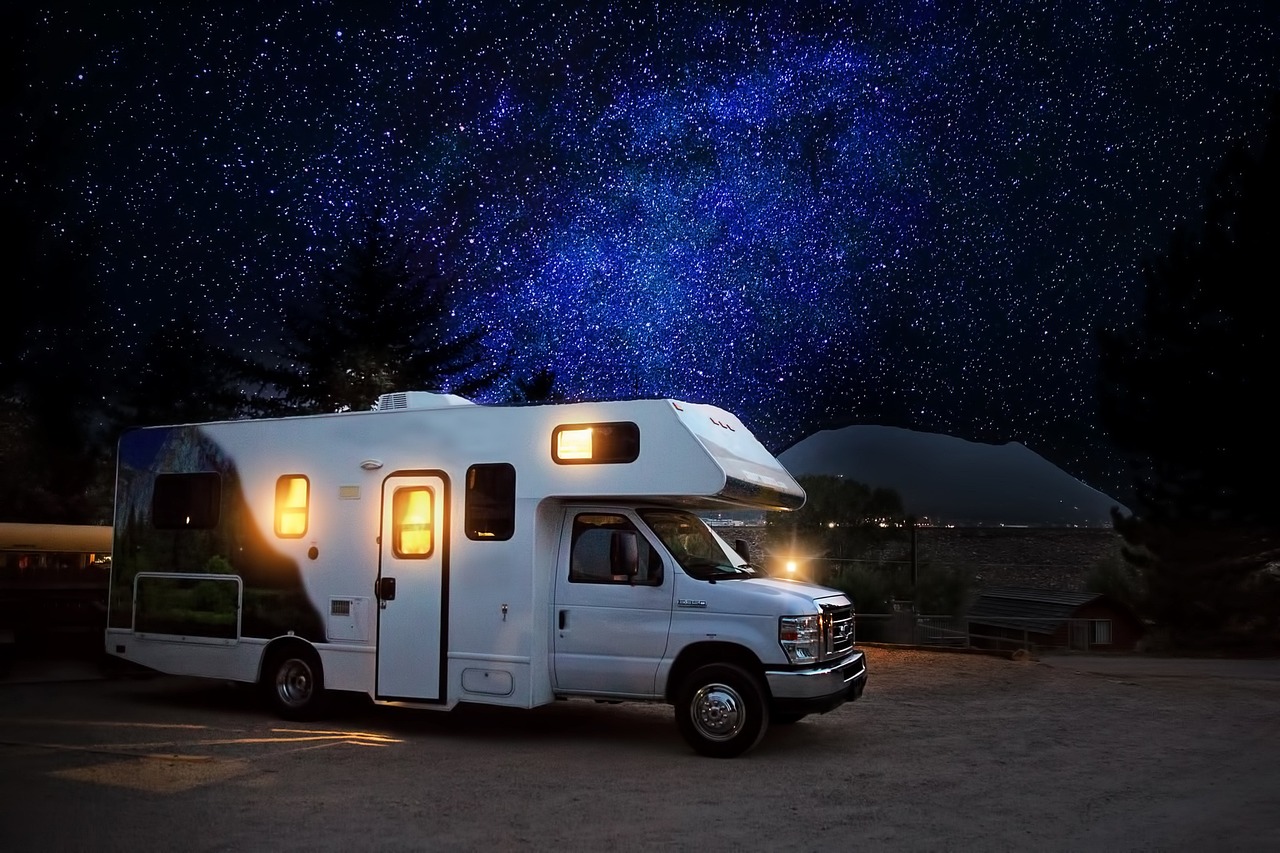
“Expert Insights on RV Rentals at MILLER’S – Everything You Need to Know!” is a comprehensive guide on RV rentals presented by Miller’s RV Rentals. In this exclusive interview, our expert delves into various aspects of the RV rental industry, providing valuable knowledge to help you navigate your RV rental journey seamlessly. The article covers topics such as choosing the right RV for your needs, understanding rental agreements, insider tips on RV travel, and the unique benefits of renting from Miller’s RV Rentals. Whether you’re a seasoned RVer or a first-time renter, this article is packed with insights that will empower you to make the most of your RV rental experience.
If you’ve ever wondered about the ins and outs of RV rentals, you’re in for a treat. Terry, our rental expert at Miller’s RV, answers some commonly asked questions that might be on your mind. From the benefits of renting an RV for family and friends getaways to the different types of RVs available for rent, Terry provides all the information you need. She also explains that no special license is required to drive an RV; a regular driver’s license will do. Furthermore, Miller’s RV provides walk-through training, ensuring that customers are well-equipped to operate the RV. If you’re considering renting an RV, Terry’s expert advice and Miller’s RV Rentals’ commitment to customer service make for an exceptional rental experience.

Check out these awesome Van Life Guides!
Choosing the Right RV
Understanding Different Types of RVs
When it comes to choosing an RV, there are several different types to consider. One of the most popular options is the motorhome, which is essentially a home on wheels. Motorhomes come in three main classes: Class A, Class B, and Class C. Class A motorhomes are the largest and most luxurious, often resembling a bus. Class B motorhomes, also known as camper vans, are more compact and easier to maneuver. Class C motorhomes are a middle ground between Class A and B, providing both comfort and convenience.
Another type of RV to consider is a travel trailer. Travel trailers come in a variety of sizes and styles, from small teardrop trailers to large fifth-wheel trailers. These trailers are towed behind a vehicle, allowing for greater flexibility and the ability to detach the trailer at your destination.
Features to Look for in an RV
When choosing an RV, it’s important to consider the features that will best suit your needs. Some key features to look for include sleeping accommodations, bathroom facilities, kitchen amenities, and storage space. It’s also important to consider the overall layout and design of the RV, as well as the level of comfort and convenience it offers.
Other features to consider include entertainment options, such as TVs and sound systems, as well as heating and cooling systems to keep you comfortable in any weather. Additionally, you may want to look for RVs with advanced safety features, such as backup cameras and collision avoidance systems.
Understanding RV Rental Agreements
Key Terms and Conditions
Before renting an RV, it’s important to thoroughly understand the rental agreement. This includes familiarizing yourself with the key terms and conditions outlined in the agreement. Some important terms to look out for include the rental period, which specifies the dates and times for which the RV is rented, as well as the rental rate and any additional fees, such as a security deposit or cleaning fee.
The rental agreement should also outline the responsibilities of both the renter and the rental company. This may include requirements for returning the RV in the same condition it was rented, as well as any restrictions on where the RV can be taken.
Insurance Requirements
Insurance is an important aspect of RV rentals and it’s crucial to understand the insurance requirements outlined in the rental agreement. Most rental companies require renters to have insurance coverage that includes liability and comprehensive coverage. It’s important to verify that your insurance policy meets these requirements or consider purchasing additional coverage through the rental company.
Mileage Limits
Many RV rental agreements include mileage limits, which specify the maximum number of miles you can travel during the rental period without incurring additional fees. It’s important to consider your travel plans and estimate the number of miles you’ll need when choosing an RV with mileage limits in mind. If you anticipate exceeding the mileage limits, you may need to negotiate additional fees or consider renting an RV with unlimited mileage.
Pet Policies
If you plan on traveling with pets, it’s important to review the rental company’s pet policies. Some companies may have restrictions on the types or sizes of pets allowed, while others may charge additional fees or require a pet deposit. Make sure to clarify these policies in advance to avoid any surprises or issues during your trip.
Cancellation Terms
Lastly, it’s important to understand the cancellation terms outlined in the rental agreement. Life happens, and sometimes plans need to change. Whether it’s due to unforeseen circumstances or a change in travel plans, knowing the rental company’s cancellation policy can save you from potential financial loss. Pay attention to any cancellation fees or deadlines for canceling without penalty.
Insider Tips for RV Travel
Planning Your Route
When planning your RV trip, it’s important to consider the route you’ll be taking. Take into account the distance and travel time between destinations, as well as any specific attractions or landmarks you want to visit along the way. Consider the availability of RV-friendly campgrounds or overnight parking options when choosing your route.
It’s also a good idea to have alternate routes in mind in case of road closures or unexpected detours. Using GPS or navigation apps designed specifically for RV travel can help you find the best routes that accommodate the size and height restrictions of your RV.
Setting Up Camp
Setting up camp in your RV is an essential part of the travel experience. When you arrive at your campground or designated parking spot, it’s important to level your RV to ensure stability and prevent any issues with appliances or utilities. Use leveling blocks or systems to achieve a balanced position.
Once level, it’s time to hook up the utilities. This may include connecting to a power source for electricity, hooking up to a water source for fresh water supply, and connecting to a sewer hookup for waste disposal. Familiarize yourself with the process and equipment needed to complete these connections safely.
Maintaining Your RV
Proper maintenance is crucial for keeping your RV in good condition and avoiding any unnecessary issues during your trip. Regularly inspect your RV for any signs of damage, wear, or leaks. Check the tire pressure and tread regularly, as well as the fluid levels in the engine. Keep up with routine maintenance tasks, such as oil changes and filter replacements, as recommended by the manufacturer.
It’s also important to keep your RV clean, both inside and out. Regularly clean the interior, including floors, surfaces, and appliances, to prevent dirt and grime buildup. On the exterior, wash the RV regularly to remove dirt, dust, and road debris that can cause damage over time.
Troubleshooting Common Issues
Even with proper maintenance and care, it’s not uncommon for RVs to experience some issues on the road. Being prepared to troubleshoot common problems can save you time and frustration during your trip. Some common issues include electrical problems, plumbing issues, and propane system malfunctions.
Before your trip, familiarize yourself with the basic functioning of your RV’s systems and keep a toolkit with essential tools and spare parts on board. In some cases, it may be helpful to have a basic understanding of how to perform minor repairs or fixes to address these issues yourself. However, if you encounter a major problem or are unsure how to proceed, don’t hesitate to contact a professional for assistance.
If You Love Van Life, You Will Not Want To Miss These, Click Here to Read More Awesome!
Benefits of Renting from Miller’s RV Rentals
Commitment to Customer Service
At Miller’s RV Rentals, we pride ourselves on our commitment to exceptional customer service. Our knowledgeable and friendly staff is always ready to assist you with your rental needs and provide guidance and support throughout your trip. We understand that renting an RV can be a new and unfamiliar experience, so we strive to make the process as smooth and enjoyable as possible.
High-Quality Fleet
When you rent from Miller’s RV Rentals, you can trust that you’ll be getting a high-quality RV from our fleet. We meticulously maintain and inspect each RV to ensure that it meets the highest standards of safety and functionality. Whether you’re looking for a spacious Class A motorhome or a compact travel trailer, you can rest assured that our fleet consists of well-maintained and reliable RVs.
Competitive Rates
We understand that affordability is an important consideration when renting an RV. That’s why we offer competitive rates at Miller’s RV Rentals. We believe that everyone should have the opportunity to experience the joy of RV travel without breaking the bank. Our pricing is transparent and upfront, with no hidden fees or surprises. We strive to provide the best value for your money, ensuring that you can have a memorable and enjoyable trip without exceeding your budget.
Who is Miller’s RV?
Miller’s RV is a reputable and trusted RV rental company with years of experience in the industry. We are dedicated to providing exceptional customer service and top-notch RV rentals to individuals and families looking to explore the great outdoors. Our team is passionate about RV travel and we are here to help you make the most of your adventure.
Whether you’re a seasoned RV enthusiast or a first-time renter, we welcome you to experience the convenience and freedom of RV travel with Miller’s RV. Discover the beauty of nature, create lifelong memories, and embark on unforgettable adventures with our reliable and well-appointed RVs.
Contact Information
For inquiries or reservations, email us at info@millersrvrentals.com.
Phone Number
Give us a call at (555) 123-4567 to speak with one of our friendly representatives.
Address
Visit our location at 123 RV Way, Anytown, USA. We look forward to assisting you with all your RV rental needs.
Motorhomes
Motorhomes, also known as RVs, are a popular choice for travelers seeking a home away from home. These fully self-contained vehicles offer the convenience of having all the amenities needed for comfortable living while on the road. From luxurious Class A motorhomes with spacious interiors and high-end features to compact Class B campervans that are easy to maneuver, motorhomes provide a wide range of options to suit different preferences and travel styles.
Class A motorhomes are the epitome of luxury and comfort on wheels. These large, bus-like vehicles offer generous living spaces with multiple slide-outs, allowing for maximum roominess. Class A motorhomes often feature full-size kitchens, bathrooms with showers, and separate sleeping areas. Some even come equipped with entertainment systems, including flat-screen TVs and surround sound speakers.
If you prefer a more compact and nimble motorhome, Class B campervans may be the perfect choice for you. These smaller RVs are built on a van chassis and offer a cozy living space with basic amenities. Class B motorhomes are ideal for solo travelers or couples looking for a nimble and fuel-efficient option that can be easily maneuvered in tight spaces.
Class C motorhomes combine the best of both worlds, offering a balance between luxury and compactness. With a distinctive over-the-cab sleeping area, Class C motorhomes provide additional sleeping space without compromising on living space. These versatile RVs often feature separate living and dining areas, as well as fully equipped kitchens and bathrooms.
Travel Trailers
Travel trailers offer a popular alternative to motorhomes for those who prefer to tow their accommodations behind their own vehicle. These towable RVs come in a variety of sizes and styles, allowing for greater flexibility in terms of vehicle choice and maneuverability.
Teardrop trailers are the smallest and most compact option, perfect for solo travelers or couples. Despite their small size, teardrop trailers typically feature a sleeping area and a small kitchenette, providing the essentials for a comfortable camping experience. These trailers are lightweight, making them easy to tow with a variety of vehicles.
Fifth-wheel trailers are the largest and most spacious travel trailers available. With a unique hitch design that attaches to the bed of a pickup truck, fifth-wheel trailers offer abundant living and storage space. These trailers often feature multiple slide-outs, allowing for expanded living areas, and can accommodate larger groups or families.
In between teardrop trailers and fifth-wheel trailers, there are various other travel trailer options to choose from, including conventional trailers and toy haulers. Conventional trailers offer a range of sizes and floor plans, while toy haulers are designed to accommodate both living space and storage for recreational toys, such as motorcycles or ATVs.
RV Tech
RV technology has come a long way in recent years, making RV travel more comfortable, convenient, and efficient than ever before. From advanced entertainment systems to smart home features, there are numerous tech advancements available in modern RVs to enhance your travel experience.
One of the most sought-after tech features in RVs is advanced entertainment systems. Many RVs now come equipped with flat-screen TVs, surround sound speakers, and integrated media centers that allow you to stream your favorite shows and movies. Some RVs even offer outdoor entertainment options, such as external TVs or speakers, so you can enjoy the great outdoors while still staying connected.
Smart home technology has also made its way into the world of RVs. With the rise of smart home devices, it’s now possible to control various aspects of your RV from your smartphone or tablet. From adjusting the temperature and lighting to monitoring security cameras and even controlling the RV’s leveling system, smart home features offer convenience and peace of mind.
Energy efficiency is another area where RV technology has made significant advancements. Many RVs now come equipped with solar panels, energy-efficient appliances, and LED lighting, all of which contribute to a more sustainable and cost-effective travel experience. These eco-friendly features not only help reduce your carbon footprint but also save money on fuel and utility costs.
FAQs
Q: Can I drive a motorhome with a regular driver’s license?
A: The requirements for driving a motorhome vary depending on the size and weight of the vehicle. In most cases, a regular driver’s license is sufficient for driving a Class B motorhome. However, a non-commercial Class B or Class C driver’s license may be required for larger Class A motorhomes, depending on the state. It’s important to check the specific licensing requirements in your state before renting or purchasing a motorhome.
Q: Is it difficult to tow a travel trailer?
A: Towing a travel trailer can be challenging, especially if you’re not accustomed to towing large or heavy loads. It’s important to have experience and confidence in towing before attempting to tow a travel trailer. Consider taking a towing or RV driving course to familiarize yourself with the proper techniques and safety precautions. Additionally, ensure that your vehicle is equipped with the appropriate towing capacity and that you’re using the correct hitch and towing equipment.
Q: Can I bring my pets on an RV trip?
A: Many RV rental companies have pet-friendly policies, allowing you to bring your furry friends along for the trip. However, it’s important to review the specific pet policies of the rental company you choose. Some companies may have restrictions on certain breeds or sizes of pets, while others may charge additional fees or require a pet deposit. It’s also important to consider the comfort and safety of your pets while traveling, ensuring that they have adequate space and accommodations in the RV.
Q: Do I need specialized insurance for RV rentals?
A: Most RV rental companies require renters to have insurance coverage that includes liability and comprehensive coverage. It’s important to verify that your insurance policy meets these requirements or consider purchasing additional coverage through the rental company. Some rental companies may offer insurance options specifically tailored to RV rentals. It’s important to understand the coverage limits and deductibles of your insurance policy and to clarify any questions or concerns with the rental company before signing the rental agreement.
Q: What is the difference between Class A, B, and C motorhomes?
A: Class A, B, and C motorhomes differ in size, layout, and overall design. Class A motorhomes are the largest and most luxurious, often resembling a bus. Class B motorhomes, also known as camper vans, are more compact and easier to maneuver. Class C motorhomes are a middle ground between Class A and B, providing both comfort and convenience. They often feature a distinctive over-the-cab sleeping area and offer a variety of floor plans and amenities. The choice between the three classes ultimately depends on individual preferences, budget, and travel needs.
Q: What are the advantages of renting an RV instead of staying in hotels?
A: Renting an RV offers several advantages over staying in hotels. Firstly, an RV provides the flexibility to travel at your own pace and explore different destinations without the need to pack and unpack every time you move. It also allows you to have all the comforts of home, including a kitchen, bathroom, and sleeping accommodations, making it cost-effective and convenient, especially for longer trips or traveling with a family. Additionally, RV travel allows for a closer connection with nature, as you have the freedom to camp in the great outdoors and experience the beauty of various campgrounds and national parks.

